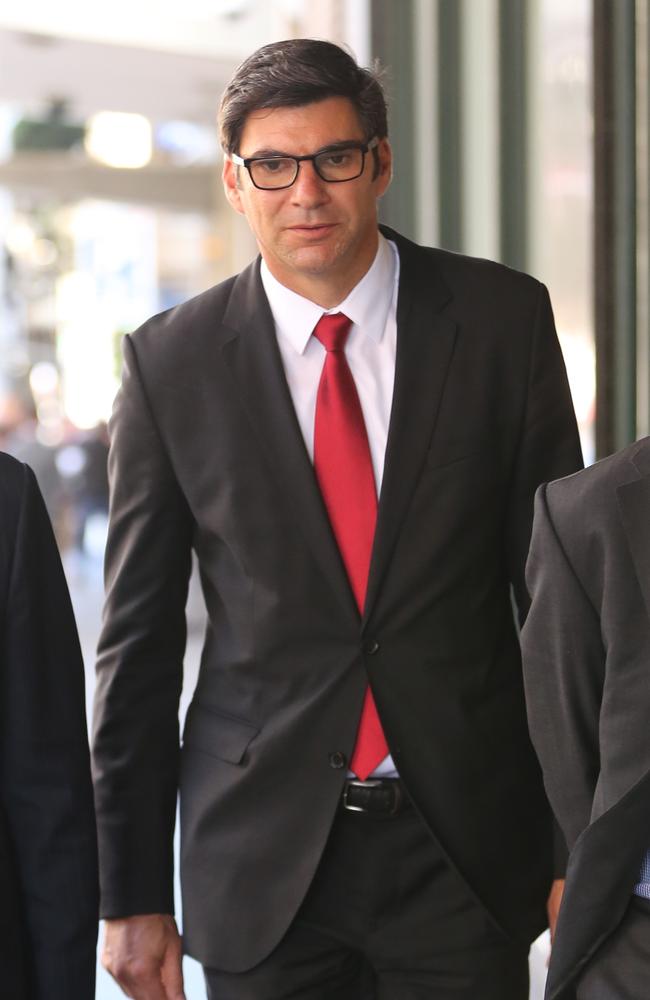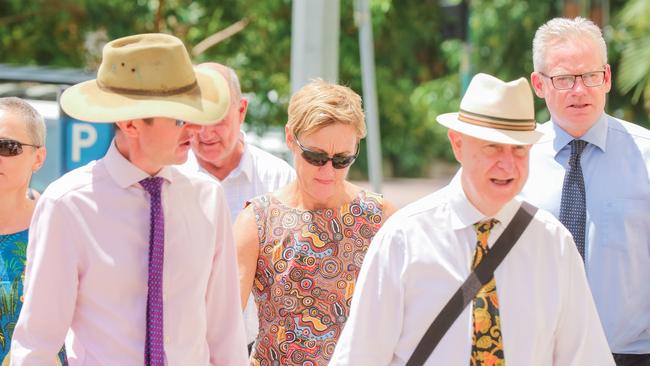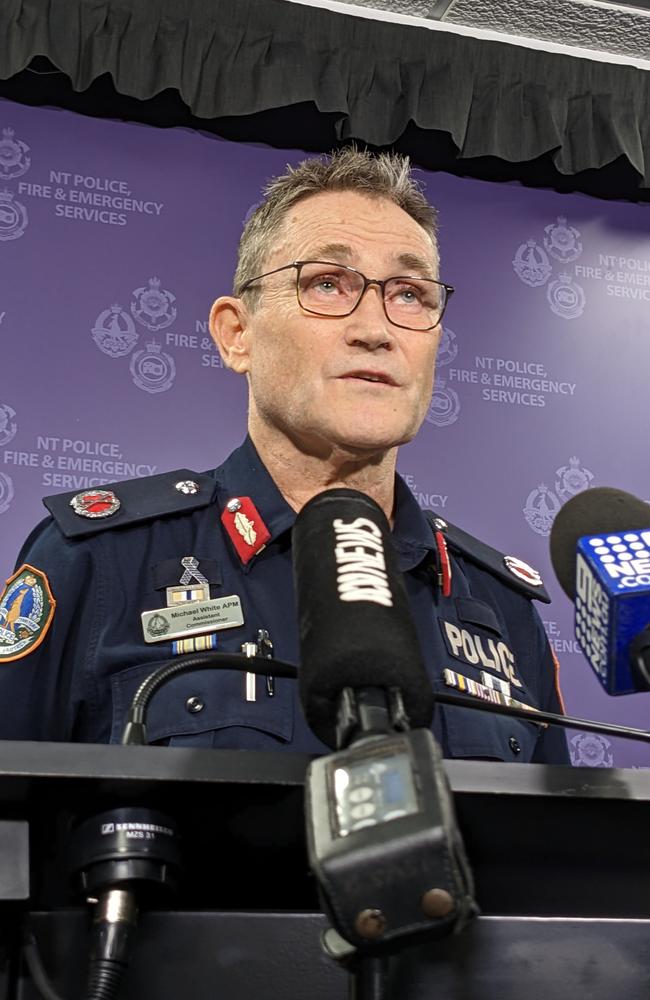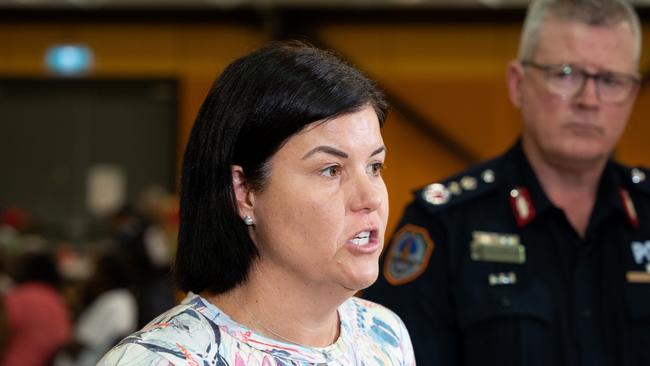NT Police, Director of Public Prosecutions defend three-year investigation into Children’s Commissioner Colleen Gwynne
The players behind a long-running investigation into an alleged case of nepotism within the Office of the Children’s Commissioner have defended their role after the abrupt withdrawal of the case.
Politics
Don't miss out on the headlines from Politics. Followed categories will be added to My News.
Police and prosecutors have defended their pursuit of a three-year investigation into the Children’s Commissioner after withdrawing abuse of office allegations days into the high-profile trial.
Colleen Gwynne was found not guilty of abuse of office last week, after the Director of Public Prosecutions ordered the jury case to be withdrawn in a shocking Supreme Court development.
Just four days into what was expected to be a six-week trial , Prosecutor Georgia Wright told the Supreme Court Justice John Burns the Crown had “no objection” to a finding of not guilty.
It came after Justice Burns delivered a yet to be published decision over a legal question at the heart of the case.
Director of Public Prosecutions Lloyd Babb defended the failed high-profile case, saying earlier local court hearings had determined there was “sufficient evidence to proceed to commit the matter for trial”.
“This matter was subject to a contested committal hearing, including on the issue of triviality,” Mr Babb said.
“(It) determined there was sufficient evidence to proceed.
“The DPP will not comment any further on this matter.”

The Attorney-General’s office said the cost of the failed prosecution would not be disclosed and did not confirm if an internal review was being considered.
Under the DPP Roles and Mission statement, it said prosecutorial disclosure was often a “vexed question”.
“It is acknowledged that the media have a legitimate interest in the administration of justice and where a person has been publicly committed for trial there usually will be no objection to the reasons for any decision not to proceed with such a trial being made public,” it stated.
In December, interstate magistrate Victorian Deputy Chief Magistrate Anthony Gett ruled the case met the “low threshold” of substantial evidence necessary to send it to a Supreme Court jury.
Mr Gett ruled the allegations that Ms Gwynne interfered with independent selection processes and failed to disclose her friendship with her former NT Police buddy, Laura Dewson, was “typical of the mischief sought to be addressed” by the abuse of office charge in the NT Criminal Code.
“The alleged conduct goes to the heart of the concepts of abuse of process,” Mr Gett said in March.
“There is nothing in the allegations as they currently stand to distinguish it from a typical breach of the section.”
He emphasised his decision to refer Ms Gwynne to the higher court was not a “a mere box ticking exercise”, nor was it a question or guilt or innocence, or an evaluation of the quality of evidence.
“The purpose of the proceeding is to prevent indiscriminate prosecutions and to protect defendants against unjustified exposure to the trial,” Mr Gett said.

NT Police were also forced to defend their part in the investigation into Ms Gwynne, including as to why the independent ombudsman’s office was bugged.
Assistant Commissioner Michael White defended the investigation, saying his officers “continue to conduct all investigations professionally and impartially”.
“Northern Territory Police commenced a criminal investigation following a referral from Office of the Public Interest Disclosure, the precursor to the Office of the Independent Commissioner Against Corruption,” Mr White said.
When asked who gave the approval for the bugging of the independent ombudsman‘s office, Mr White said: “No further details will be provided regarding this matter.”

During the local court hearing, Ms Gwynne’s senior counsel Phillip Boulten also suggested she had been targeted for her advocacy and findings that “were not popular in some areas of the government”.
NT Police did not respond to these claims, how police managed the conflicts of interest surrounding the former senior officer, or if an internal review would now take place.
Chief Minister Natasha Fyles said there had been no changes to the Office of the Children’s Commissioner following Ms Gwynne’s not guilty finding.
“Ms Gwynne is on a leave of absence to consider her next steps. During this time, Ms Nicole Hucks will continue as the Acting Children’s Commissioner,” a spokeswoman for her office said.

During the investigation, Ms Gwynne was allegedly secretly recorded making racist comments against Ms Hucks, calling the Aboriginal woman a “fat g-n”, a ”c—t” and a “b—h”.
“Mate, I won’t forget. I’ll f—king target her,” Ms Gwynne allegedly said.
Following the verdict, Ms Gwynne apologised for her comments.
Ms Fyles did not comment on the NT government’s position on Ms Gwynne remaining as the head of the Office of the Children’s Commissioner, particularly as 88 per cent of complaints to it in 2021-22 were about the alleged mistreatment of Indigenous children.
The Royal Commission into the Protection and Detention of Children in the Northern Territory recommended in 2017 there should be an Aboriginal co-Children’s Commissioner and the OCC should have a minimum of 20 full-time employees.
The latest Justice Department annual report said there were 9.25 full time equivalent employees at the OCC, while Ms Fyles did not respond to questions over whether selection of the next Children’s Commissioner should look for Indigenous candidates.





